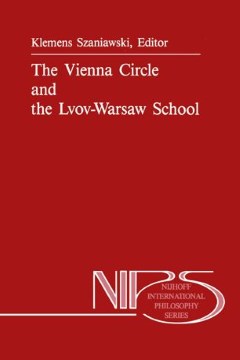Repository | Buch | Kapitel
Austrian origins of logical positivism
pp. 19-53
Abstrakt
It was in 1922 that Moritz Schlick — a German physicist-cum-philosopher of aristocratic manners and conservative opinions — arrived in Vienna1. He had been invited to take up chair of philosophy with special reference to the history and theory of the inductive sciences' that had been created for another physicist-cum-philosopher, Ernst Mach, in 1895. Mach himself had previously served for almost thirty years as professor of experimental physics in Prague, and it will be important in what follows to remember that Prague was still to some extent a German city and a centre of intellectual activity almost no less important than Vienna herself. The lines of communication between the two former Imperial-Royal capital cities2 were still strong, and the same figures were often, at different times, prominent in each.
Publication details
Published in:
Szaniawski Klemens (1989) The Vienna circle and the Lvov-Warsaw school. Dordrecht, Springer.
Seiten: 19-53
DOI: 10.1007/978-94-009-2829-9_3
Referenz:
Smith Barry (1989) „Austrian origins of logical positivism“, In: K. Szaniawski (ed.), The Vienna circle and the Lvov-Warsaw school, Dordrecht, Springer, 19–53.



